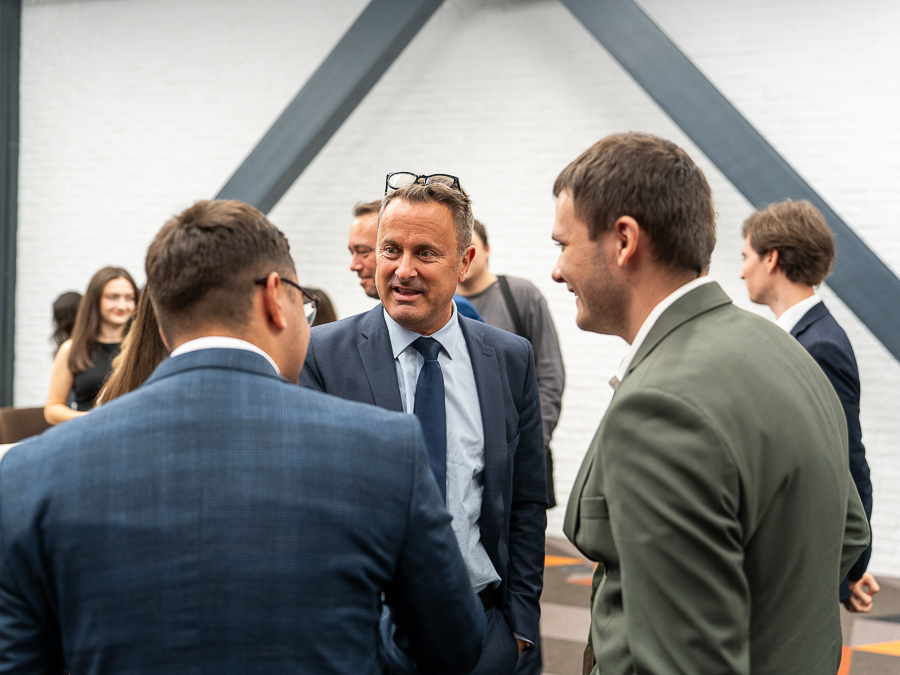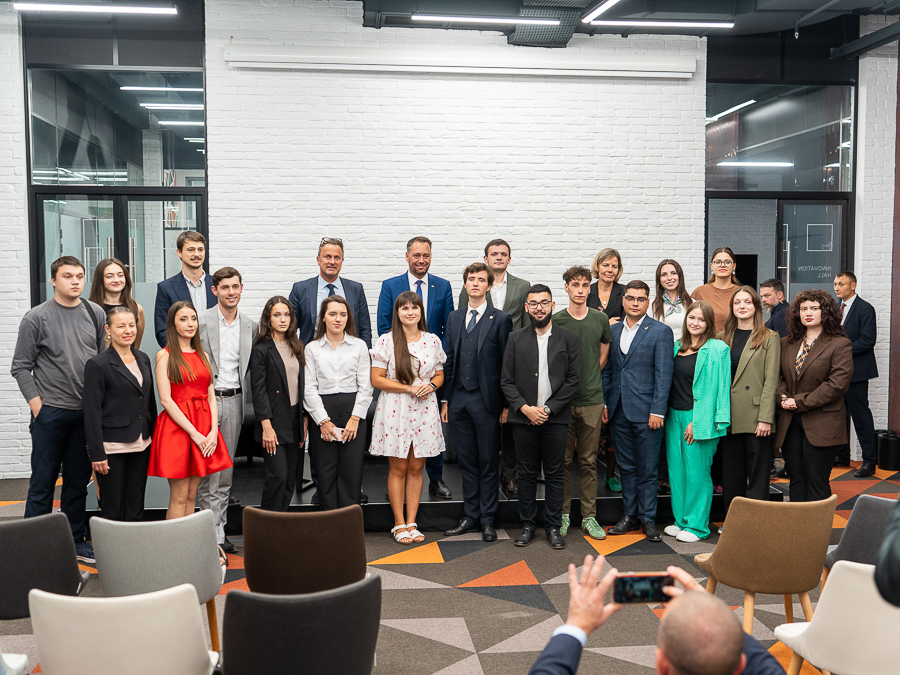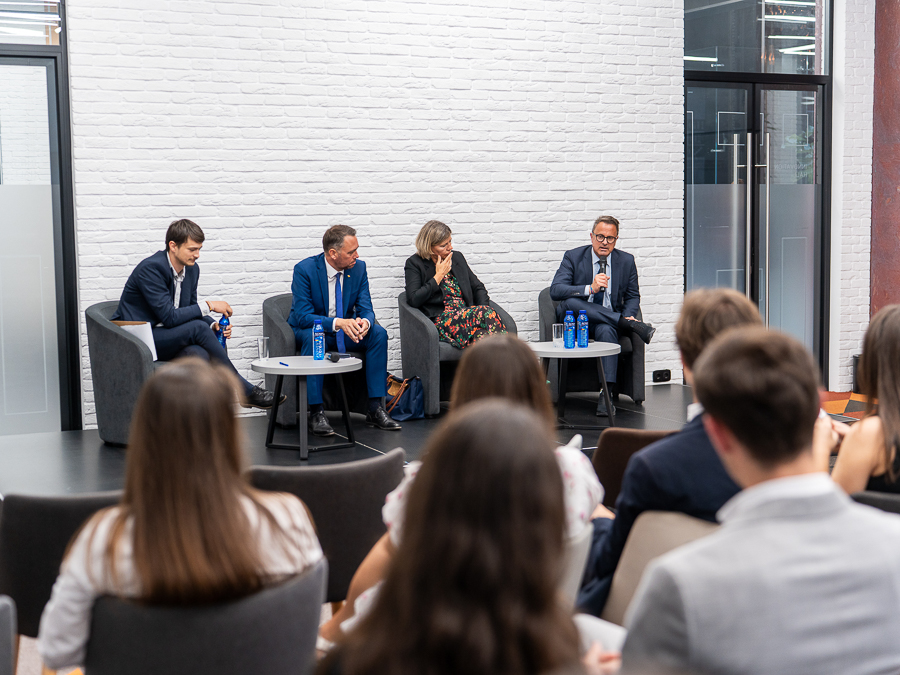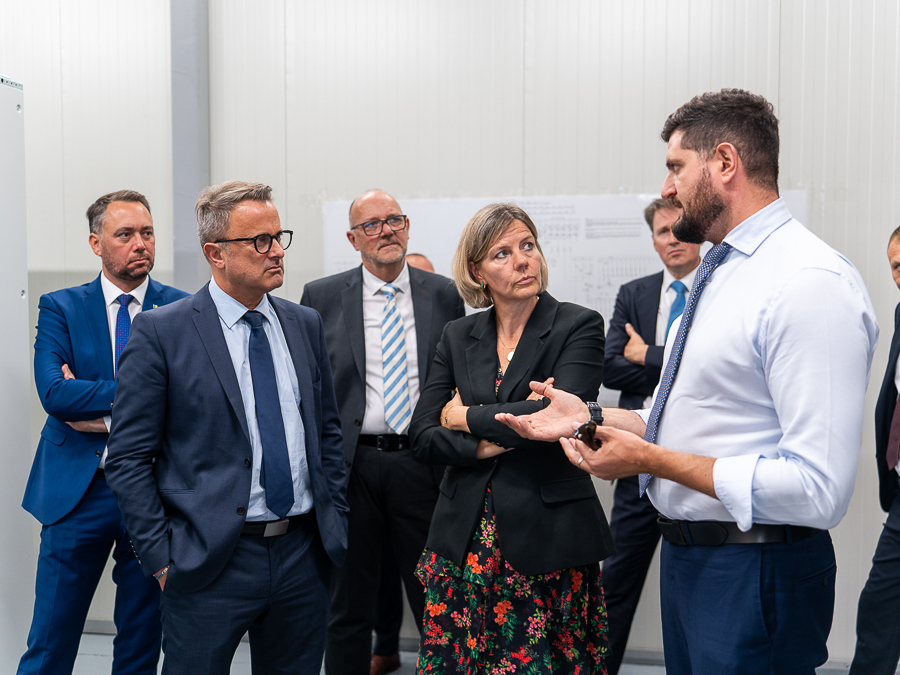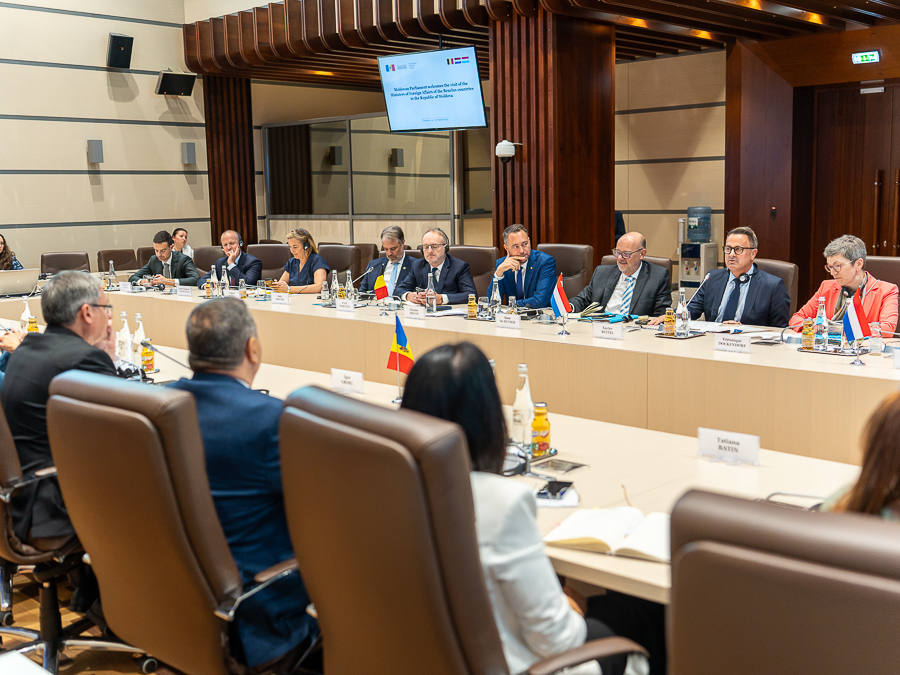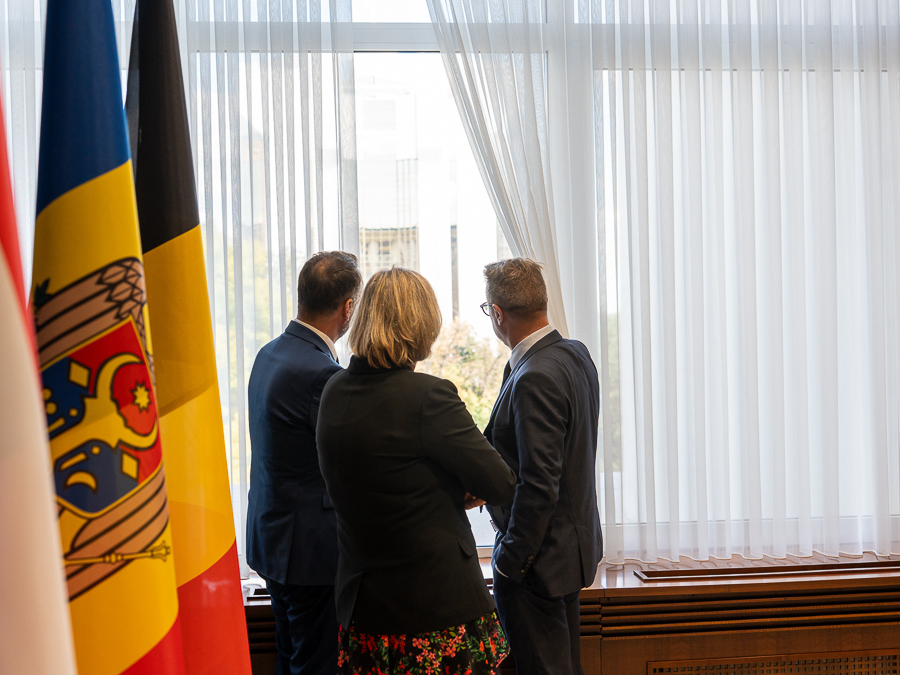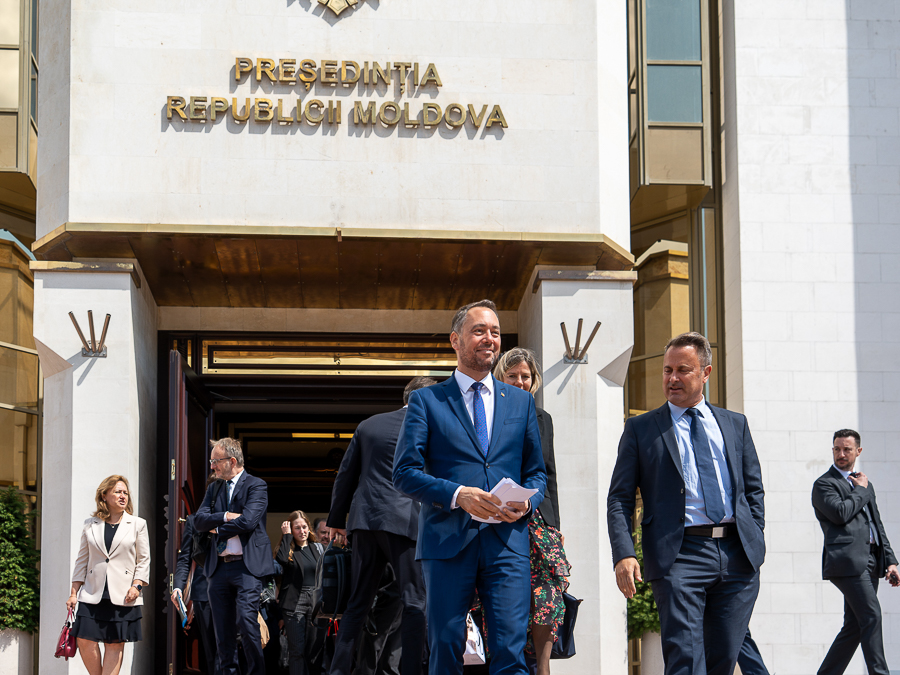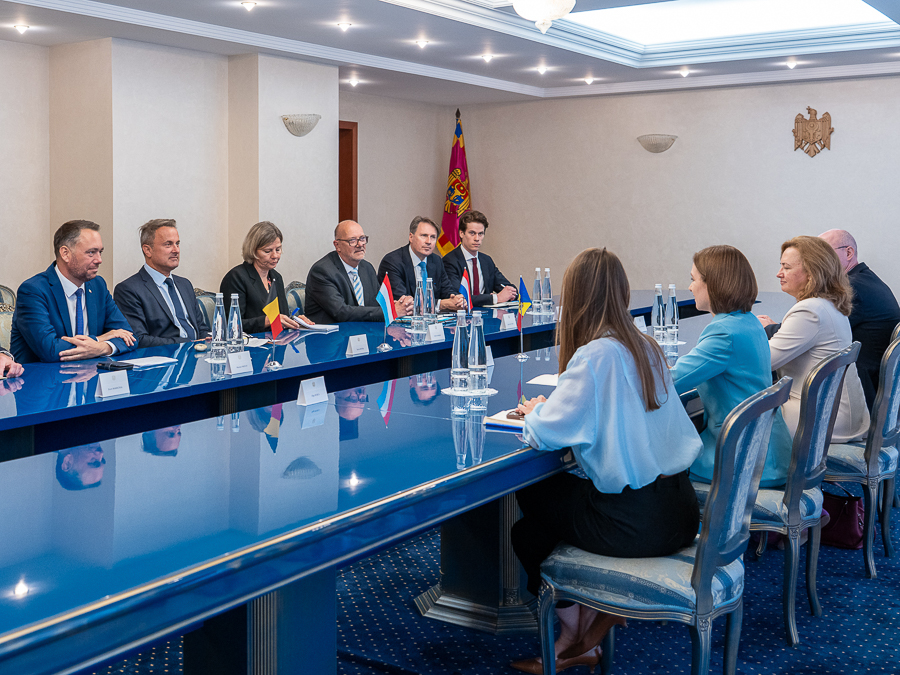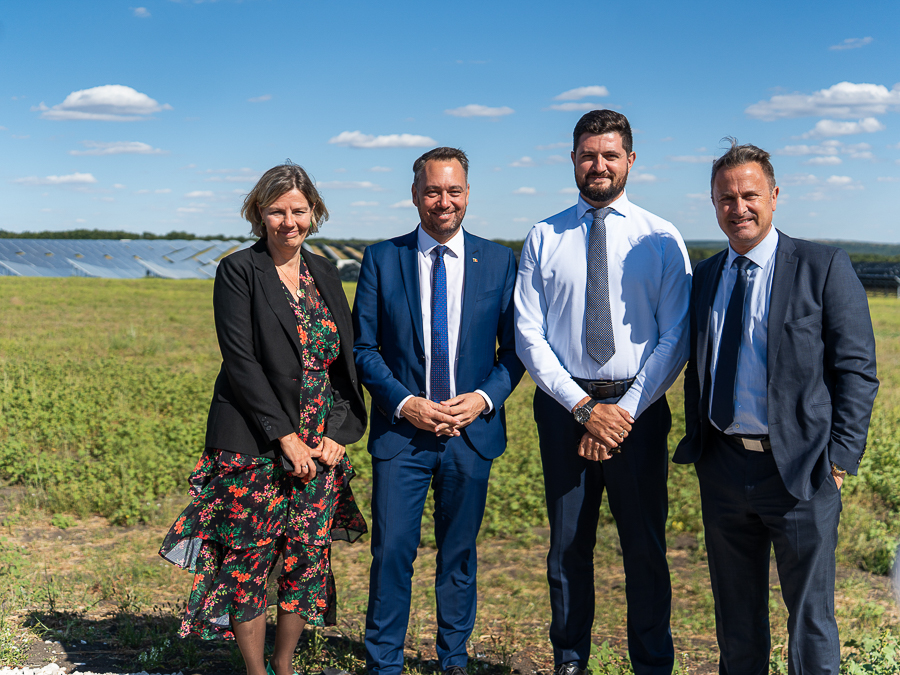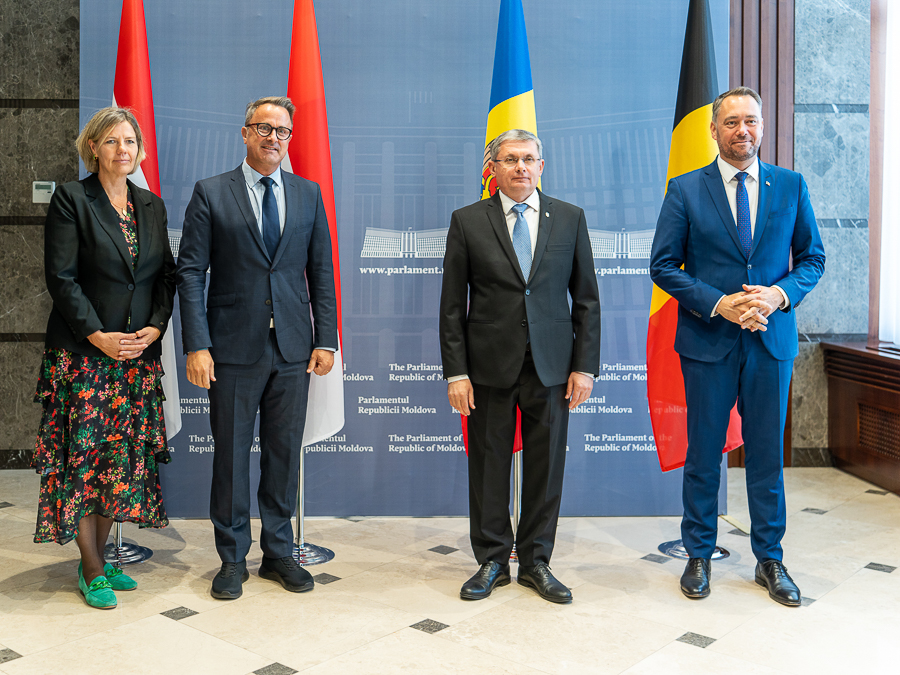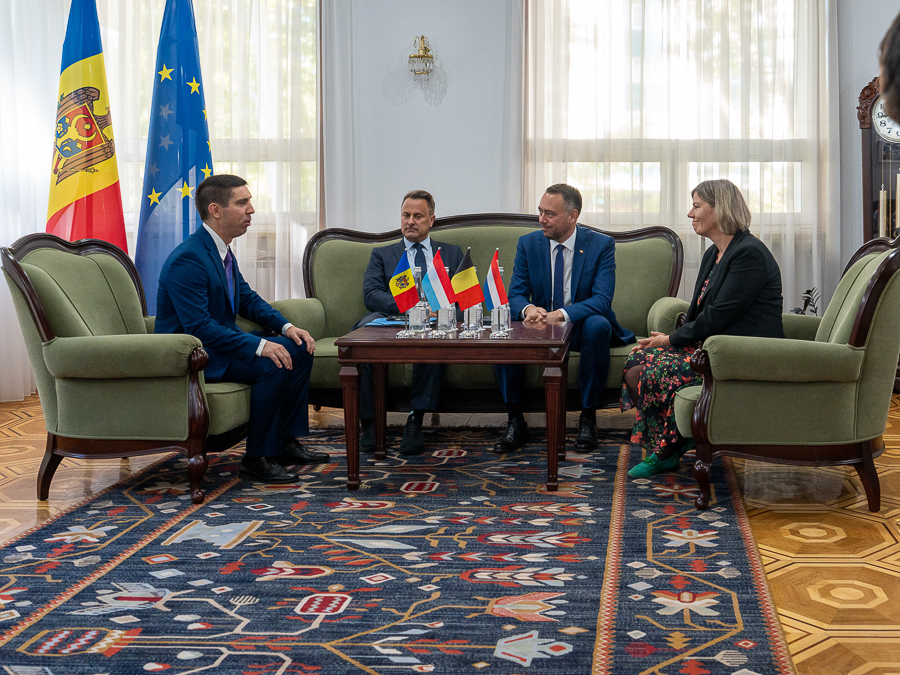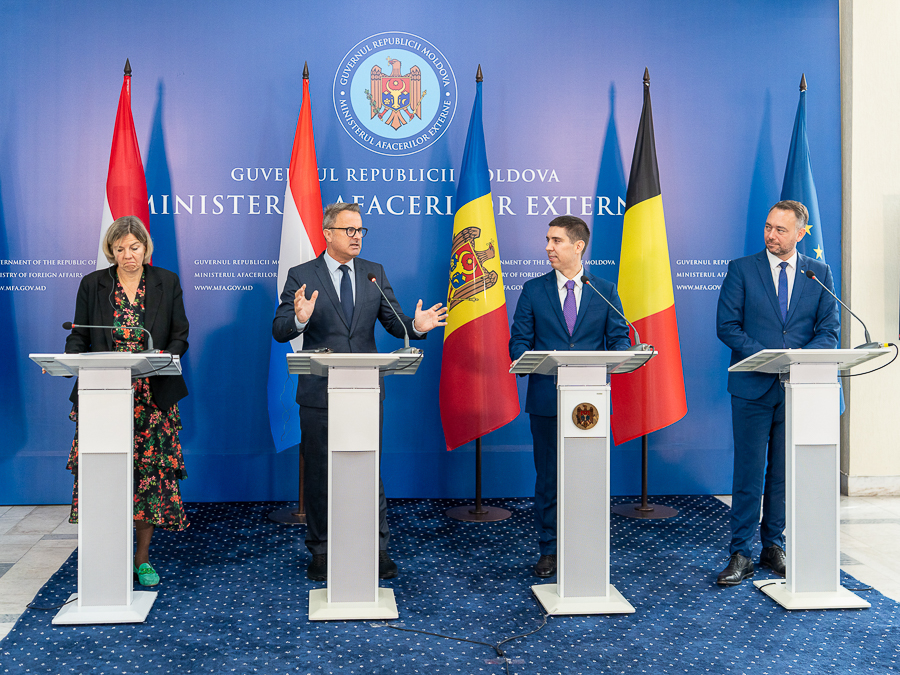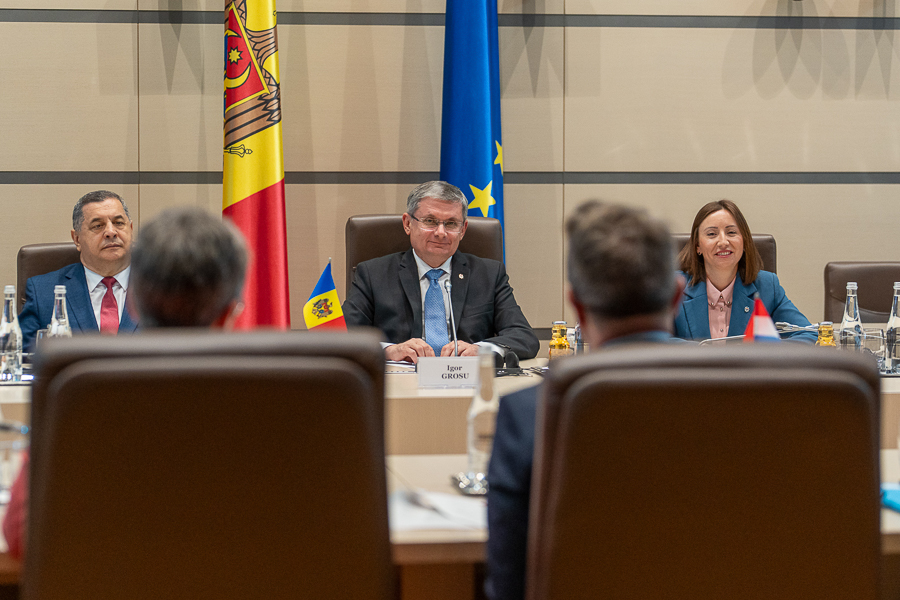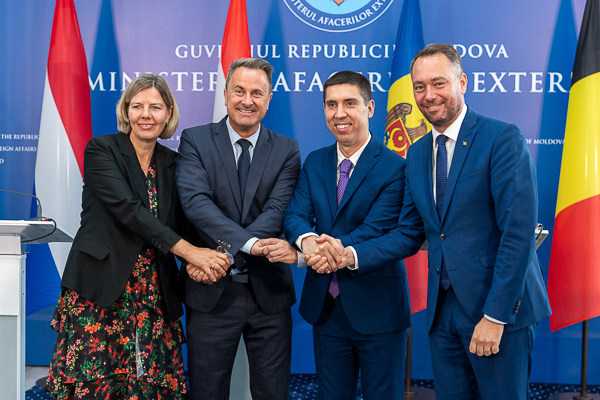 (L-R) Heleen Baker, Deputy Minister of Foreign Affairs of the Netherlands; Xavier Bettel, Luxembourg Deputy Prime Minister; Mihai Popșoi, Deputy Prime Minister of Moldova; Maxime Prevot, Deputy Prime Minister of the Kingdom of Belgium;
Credit: MAE Luxembourg
(L-R) Heleen Baker, Deputy Minister of Foreign Affairs of the Netherlands; Xavier Bettel, Luxembourg Deputy Prime Minister; Mihai Popșoi, Deputy Prime Minister of Moldova; Maxime Prevot, Deputy Prime Minister of the Kingdom of Belgium;
Credit: MAE Luxembourg
On Monday 25 August 2025, Luxembourg’s Deputy Prime Minister, Xavier Bettel, together with Deputy Prime Minister and Minister for Foreign Affairs of Belgium, Maxime Prévot, and the Director-General for European Cooperation at the Ministry of Foreign Affairs of the Netherlands, Heleen Bakker, carried out a Benelux visit to Chișinău, Moldova.
The Luxembourg Ministry of Foreign and European Affairs, Defence, Development Cooperation and Foreign Trade reported that the two ministers and the director-general held political talks with Moldova’s President Maïa Sandu, Minister for Foreign Affairs Mihai Popșoi, Minister for European Integration Cristina Gherasimov, Minister of Internal Affairs Daniela Misail-Nichitin, Minister of Energy Dorin Junghietu and the Speaker of the Moldovan Parliament, Igor Grosu.
During the talks, the ministers addressed Moldova’s efforts in the framework of the EU accession process, the regional geopolitical context, the parliamentary elections scheduled for September 2025 and relations between the Benelux countries and Moldova.
In this context, Minister Bettel reiterated Luxembourg’s support for Moldova’s European perspective, stressing that the country’s future rests exclusively with the Moldovan people.
On the regional geopolitical situation, the discussions focused on the role played by Russia in the run-up to the parliamentary elections. According to the ministry, Russia is attempting to influence the electoral process through disinformation and hybrid attacks, with last year’s presidential elections serving as an example of how Russia seeks to sway voters.
The ministry reported that the ministers and the director-general also addressed the country’s energy independence. Thanks to close cooperation with the EU, Moldova has now become almost fully independent from Russian energy imports. In this context, the delegation visited a recently inaugurated photovoltaic park, a flagship project in Moldova’s drive towards energy self-sufficiency.
Beyond political talks, the visit also provided opportunities for exchanges with civil society, particularly regarding Moldova’s European aspirations and the engagement of young people in supporting the country’s EU accession.

